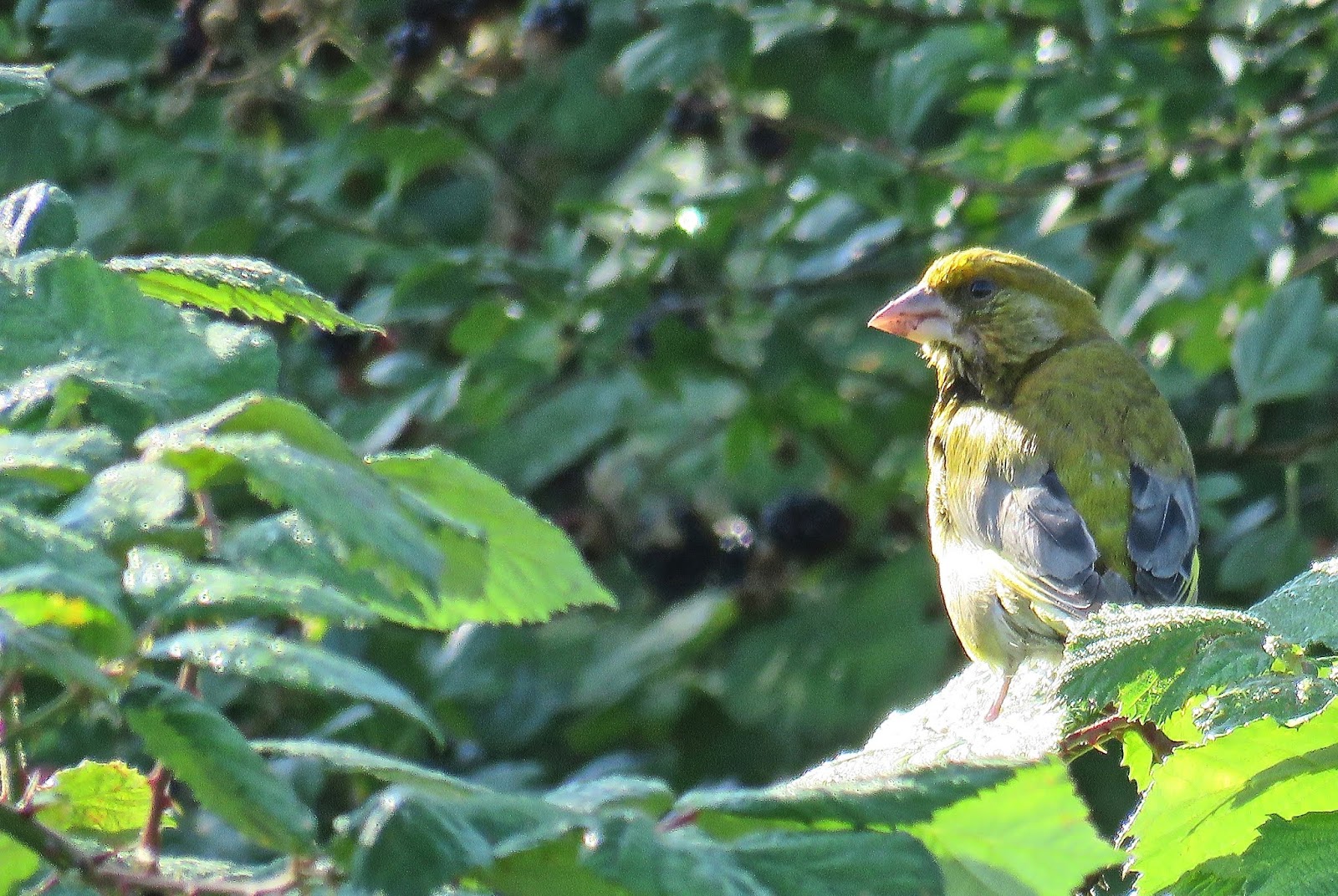This morning, a fellow blogger posted his delight at observing a flock of Greenfinches in Norfolk - the first time that he had seen this species gathered together in any number. Old hands like myself are lucky enough to remember the days before Trichomonosis decimated the UK population of this finch - my highest flock counts are below:
1977 Beddington SF, Surrey
2 October, 1,000+
1982 Dungeness, Kent
27 October and 27 November, 1,300
The Beddington flock was feeding across several settling beds that were packed full of seed-bearing wild flowers, mainly Fat-hen. They remained on site for just a few weeks. As for the Dungeness flock, that was faithful to the beach just east of the power station, and just like the Beddington birds were taking advantage of copious amounts of seed. Greenfinches were found annually in good numbers here from early autumn right through the winter months. Needless to say, such counts as these are a thing of the past. Today, if you were to visit the shingle beach, you would be hard pushed to find a single bird. The image above is the only one of a Greenfinch that I have, taken at Priest Hill last summer. Another case of 'Record shot my arse'...



Comments
I know Trichomonosis has hit Greenfinches hard, but even without that it is hard to imagine such numbers now. No other finch gets that kind of number. Whether it be the collapse in insect numbers or the disappearance of seeds from the countryside, finch numbers just seem way down in general.